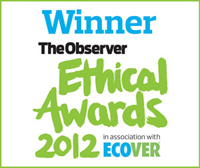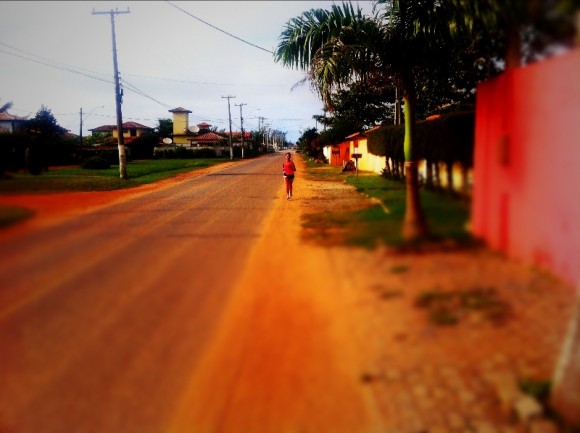 Every morning for the past three months, I've been saying a little mantra to myself when I wake up: "I am a marathoner". I've been training for my first marathon and ten days ago I finally did it! It was pretty hard, but an amazing experience. And looking back on it, having my mantra was crucial.
Every morning for the past three months, I've been saying a little mantra to myself when I wake up: "I am a marathoner". I've been training for my first marathon and ten days ago I finally did it! It was pretty hard, but an amazing experience. And looking back on it, having my mantra was crucial.
It was crucial because my little mantra made the training and the marathon part of my core identity. A marathon is not something someone can just do "on the side". You need to embrace it or you won't have the willpower to run in the rain or when you've had a bad day at work. You won't have the willpower to avoid chocolate and eat a more nutritious fruit and nut bar instead. And you won't have the willpower to run those extra six miles when you've already run twenty. The marathon eventually became part of me – and I drew on my mantra all the time to help me train, carry on and eventually finish.

I've been thinking about mantras now that the Rio+20 Summit is over. A key outcome of Rio+20 was agreement from governments that a new set of Sustainable Development Goals (SDGs) should be developed as part of the broader international development agenda after 2015, drawing on the success of the eight existing Millennium Development Goals (MDGs).
The MDGs have indeed been very successful, as this recent UN report outlines. They've acted as the world's "mantra" – focusing on major challenges we can address together and individually, such as education and health. Though more needs to be done, many developing countries and aid donors alike have been running and progressing along the poverty reduction marathon, armed with these MDGs as their mantra.
Yet while environmental issues were covered by one of the MDGs (MDG7), this goal never really captured the world's imagination in the same way the other goals did. MDG7 focused primarily on water, sanitation, biodiversity and slums. It was therefore quite narrowly specified, and anything broader – such as action on climate change – has often been interpreted as trading-off with economic and social goals. It means that as far as environmental sustainability is concerned, we've not being doing a marathon at all – we've only been doing a bit of running "on the side".
So what's to say that the process to develop SDGs will change this? Won't this process just clash completely with the post-2015 framework? Will environmental sustainability simply remain something we do "on the side" rather than embrace?
The trick will be to find a new mantra that makes sustainability a part of the broader poverty reduction "marathon". We need to try to integrate sustainability into the other key goals that are out there. If we do this, governments and the private sector won't be able to ignore the environment because it's raining today or there's some sort of crisis. If we can make sustainability a part of every-day activities, we could all have the willpower to make sustainable consumer choices. Some businesses have already begun thinking along these lines – check out Marks and Spencer's new "Schwopping"(shopping and swapping) campaign. An integrated mantra could give us sufficient focus and inspiration to keep us going for that extra mile, perhaps eventually rectifying past environmental damage.
The problem is, coming up with an integrated mantra won't be easy – it will be much easier to use the SDG process to design goals and a mantra that speak to a small community of environmental experts and converts, as was done previously for MDG7. Countries and parts of civil society will likely continue to propose long lists of specific environmental goals. But that's why it's a relief that Rio+20 did not ignore the importance of thinking about the SDGs together with the post-2015 development framework. Governments committed to pursue the agendas together in a coherent and coordinated way. That means we have the freedom to start thinking about the post-2015 framework and how sustainability fits into it now, in 2012. It's a good thing, because one thing is clear - if we're going to craft a mantra that really sticks and works for the marathon ahead, we will need as much time as possible!

1 comment
Comment by Jonathan Glennie posted on
Great post Hannah, and you are right that if the SDGs are as successful as the MDGs in becoming the mantra (nice word) for the next era of development then we could be onto a good thing. I don't see why they shouldn't be... J